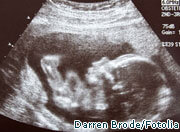It is time to “rethink our attitude” to eugenics, a national newspaper writer has claimed, as rules allowing the creation of genetically modified babies come into force.
In February both the House of Commons and the House of Lords backed regulations allowing three and four-parent babies, despite widespread concerns.
A bioethics expert said at the time that the move could be a “monstrous mistake”, while MEPs warned that the UK’s step may be breaking European laws.
‘Genetic quality’
Writing in The Daily Telegraph, the newspaper’s Head of Technology backed the techniques, which are legalised on Thursday.
Madhumita Murgia said the process “is essentially eugenics, the science of improving the genetic quality of the human population”.
She continued: “Eugenics is a dirty word, most commonly associated with racist profiling, or Nazi experiments. But the time has come to rethink our attitude.”
Murgia said that eugenics can also lead to ‘solving human health crises’.
Destruction of embryos
However, in July it was revealed that scientists have developed a revolutionary adult stem cell treatment which could lead to a cure for mitochondrial diseases without resorting to controversial GM baby techniques.
The regulations coming into force this week cover two procedures – Maternal Spindle Transfer (MST) and Pro-Nuclear Transfer (PNT).
Research into both techniques involves the destruction of embryos, and although the stated aim of the procedures is to create children free from mitochondrial disease, they will not help women and children who already have the condition.
Dr Calum MacKellar, of the Scottish Council on Human Bioethics, has said the techniques are “not a treatment”.
Unworthy
Dr MacKellar described them as, “a kind of genetic cleansing procedure in which persons with disability and sickness are seen as being unworthy of life”.
MST involves replacing the nucleus in a healthy donor egg with the nuclear DNA from the prospective mother – resulting in a child with DNA from three parents.
PNT creates a child from four different individuals (a chromosomal mother, a chromosomal father, an egg mother and a sperm father).
Parliamentary support
In February, after a debate lasting just 90 minutes, MPs voted 382 to 128 in favour of the regulations. The House of Lords backed the move by 280 to 48 later in the month.
The Human Fertilisation and Embryology (Mitochondrial Donation) Regulations 2015 become law on 29 October.
The UK is the only country in the world to have legalised MST and PNT.

